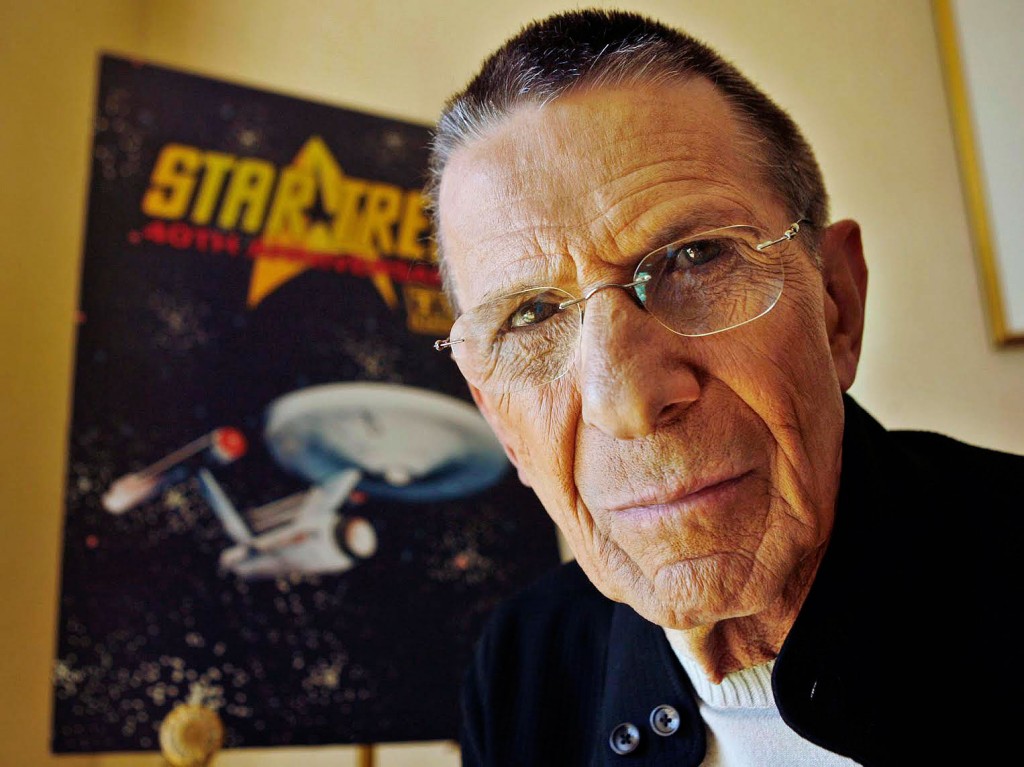
Beloved actor and science fiction icon Leonard Nimoy, best known for his role as “Star Trek’s” logical Mr. Spock, died Friday morning in his Los Angeles residence at age 83. The death, while deeply saddening, was not entirely a surprise: Nimoy recently announced his diagnosis of chronic obstructive pulmonary disease (COPD). His family confirmed COPD as the cause of death.
Within minutes of the announcement, social media was overwhelmed with tributes to Nimoy and his embodiment of the Spock character. Half-human and half-Vulcan, Spock represented a man of two worlds: one highly emotional, the other perfectly rational. Throughout his long career as Spock, the character became a part of the actor’s personal identity. To be seen, and to be loved, as one thing for so long, at points Nimoy felt fragmented in regard to this inner duality. Nevertheless, Nimoy stayed devoted to the character he sought to create, to the ideology he helped inspire, and the subculture that made him a legend. But to reduce Nimoy to Mr. Spock is a great injustice to the man behind the character.
Apart from his logically minded and absolutely rational counterpart, Nimoy was a very spiritual man, romantic even, in the way he looked at the world and other people. His personal endeavors included both poetry and photography, having published several books of poetry along with two autobiographies.
“When you let me take, I’m grateful,” Nimoy once said. “When you let me give, I’m blessed.”
He was a giver. On the screen he opened his heart and his mind to embody a character that was not human, that was not emotional. It’s a character that consumed his daily life for three years, and stood as source of a great identity crisis. Sharing his body with two souls, his own and Spock’s, Nimoy struggled with his life after “Star Trek.” He would discuss this in his controversial 1975 autobiography “I Am Not Spock.” While many fans were discouraged and felt that Nimoy was trying to distance himself from the character, the reality of the text was really a means of reconciling the two distinct parts of his life: the public and private. Despite the disparity, Nimoy grew to accept, even love, his other half. In 1995, 20 years later, Nimoy wrote another autobiography, “I Am Spock,” where he reflects on the character that remained important to him throughout the rest of his career.
“Spock is definitely one of my best friends,” Nimoy wrote. “When I put on those ears, it’s not like just another day. When I become Spock, that day becomes something special.”
In his poetry, Nimoy was a romantic who sought to convey the magic of life in meter, accompanied by his photography. His last tweet resonates especially in contrast to his own death: “A life is like a garden. Perfect moments can be had, but not preserved, except in memory. LLAP.”
Live long and prosper indeed. Nimoy’s final words to this world should be heard, and deeply meditated on. Every day might not be perfect but, like a garden, you need to take care. Weeding out the bad, one makes space to let the good grow. To keep the garden green and lush, it’s important to keep the memory of those “perfect moments” close. So that even in the hard times, you can still find the light. Nimoy may have left us in life, but his memory survives in the hearts of fans everywhere.
Nimoy had said that “The miracle is this: the more we share, the more we have.” He had a long, colorful career in which he shared his talents and his art with millions of loving fans. He taught us that even logicians dream, and that the love of the stars is universal across all life. What Nimoy embodied in his character of the alien Spock illuminated what it means to be human. He will be missed.
Beam him up, Scotty.


